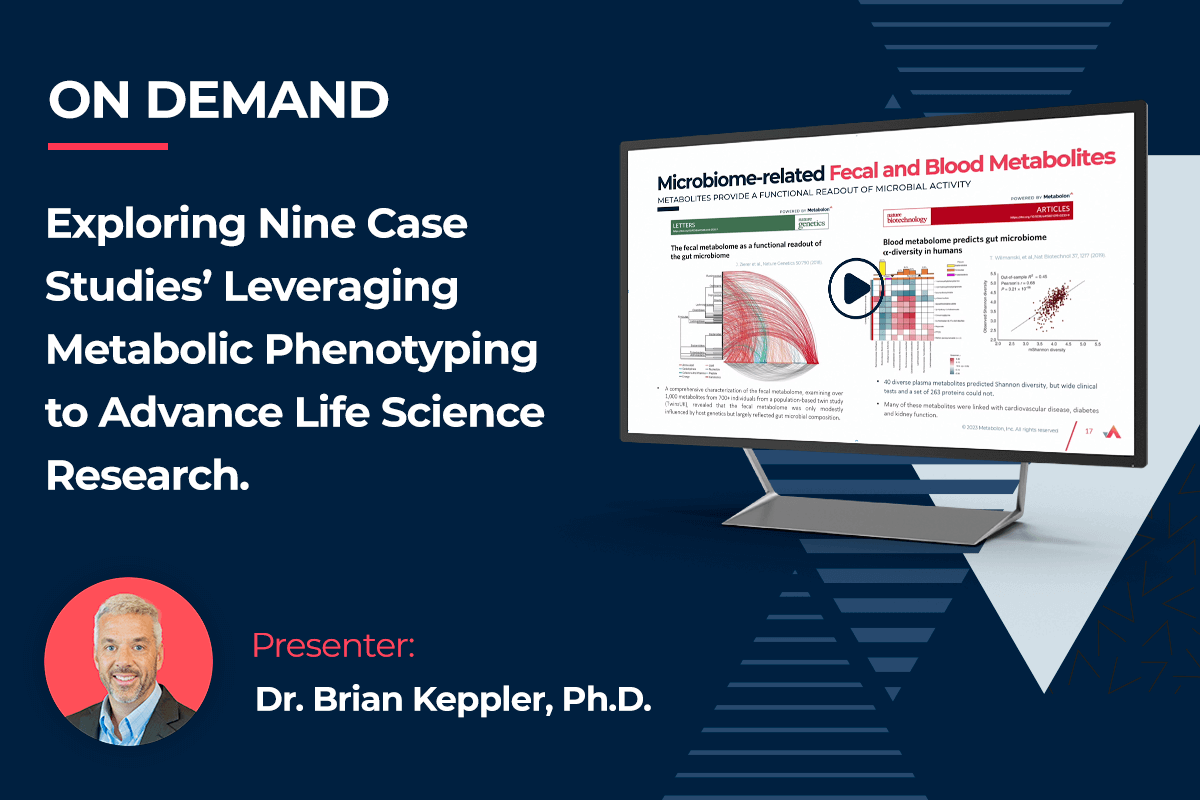ON-DEMAND WEBINAR
Exploring Nine Case Studies’ Leveraging Metabolic Phenotyping to Advance Life Science Research
Greater access to functional metabolomics data has dramatically improved the outcomes of small molecule research across the spectrum application and therapeutic areas. With growing numbers of novel metabolomics research being published, leveraging the functional phenotype for new biological insights has never been easier, or more achievable than it is today.
Join Dr. Brian Keppler, Director of Discovery and Translational Sciences at Metabolon, in exploring nine examples of how metabolomics and lipidomics have recently been used to advance research on liver disease and gastrointestinal disease. Dr. Keppler will also discuss recent insights into the gut-brain axis, with evidence of the gut microbiome’s functional role in Autism Spectrum Disorder (ASD) and other neurological disorders.
Each case study is explained with references and figures to help you dive deeper into the research.
You Will Learn:
- How to detect and validate translatable biomarkers with metabolomics.
- Understanding resistance mechanisms and identifying new resistance mutations in oncology.
- Exploration of the microbiome and metabolic disease with metabolomics datasets.
- The functional role of metabolomics in further research and multi-omics data studies.
- How Metabolon’s technology provides the best analyte coverage within a single biological sample.
Speakers:
Dr. Brian Keppler, Ph.D.
 Dr. Brian Keppler is the Director of Metabolon’s Commercial Discovery and Translational Sciences team and serves as the lead scientific liaison for global business opportunities with pharmaceutical, biotechnology and applied markets companies. Brian has been with Metabolon since 2011 and manages company efforts toward illuminating novel biological insights and supporting meaningful decision-making to accelerate research and development and advance client success. He received his Ph.D. in Pharmaceutical Sciences from the University of North Carolina at Chapel Hill and completed his postdoctoral training at the National Institute of Environmental Health Sciences in Research Triangle Park, NC.
Dr. Brian Keppler is the Director of Metabolon’s Commercial Discovery and Translational Sciences team and serves as the lead scientific liaison for global business opportunities with pharmaceutical, biotechnology and applied markets companies. Brian has been with Metabolon since 2011 and manages company efforts toward illuminating novel biological insights and supporting meaningful decision-making to accelerate research and development and advance client success. He received his Ph.D. in Pharmaceutical Sciences from the University of North Carolina at Chapel Hill and completed his postdoctoral training at the National Institute of Environmental Health Sciences in Research Triangle Park, NC.




